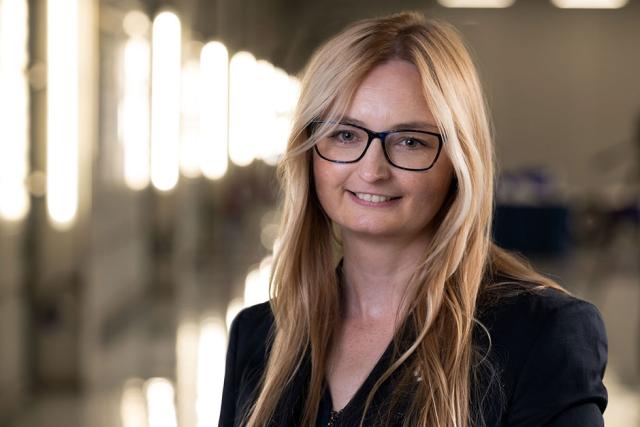
Research offering a promising future for people with inflammation-driven diseases
25 July
A researcher funded by the Health and Care Research Wales Faculty has uncovered a potential new drug that offers better, safer and affordable ways to block the membrane attack complex (MAC), a protein that causes inflammation, and treat common inflammatory diseases like rheumatoid arthritis, multiple sclerosis and Alzheimer’s disease.
Existing treatments have only managed symptoms without addressing the root cause of inflammation.
Dr Wioleta Zelek, a Race Against Dementia and Alzheimer's Research UK Fellow and UK Dementia Research Institute Emerging Leader, said the study found that novel monoclonal antibodies (mAbs) showed promise, effectively blocking the MAC without the costs of existing drugs.
Dr Zelek's research journey took an unexpected turn during the pandemic. She pivoted her work to investigate how anti-complement therapy might help severe COVID-19 patients and obtained encouraging results, showing that blocking complement could improve patient outcomes. This led to her involvement in a compassionate use study, providing hope for a new class of treatments.
Dr Zelek said the mAbs were not just offering hope for rare diseases, but could also change the landscape of treatment for common conditions affecting millions.
She added that she aimed to offer a future where inflammation-driven diseases could finally be stopped in their tracks.
She said: “The new class of drugs is cheaper, safer and more accessible - critical factors for widespread use. It has the potential to transform lives, bringing real change to patients who have suffered for years.
“I'm very grateful to have received the Health Research Fellowship Scheme award from the Health and Care Research Wales Faculty for supporting my initial work on MAC inhibitors, which has led to the discovery of small molecules now being advanced by Acionna Therapeutics in the development of drugs for people affected by dementia.”
Sign up to our weekly newsletter and keep up with the latest research news, funding opportunities and other useful information.